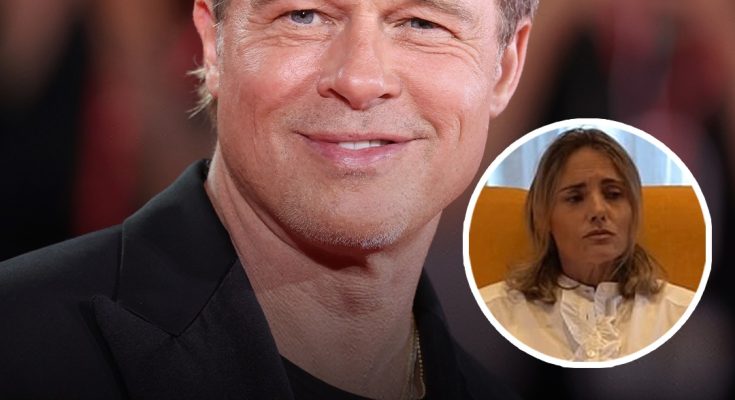One French woman has been scammed out of $850,000 after becoming convinced that she was dating Brad Pitt, as it turned out the Hollywood movie star was actually just an extortionist taking advantage of AI generated imagery.
Scams have increased exponentially with the rise of the internet, and with advancements in artificial intelligence technology it’s become even more challenging for vulnerable individuals to stay safe online.
From Gmail hacks that show you where you live to fake QR codes that lead to nefarious websites, there are countless methods that you need to be aware of in order to avoid extortion online – but one woman unfortunately became a victim of an elaborate scam with AI at the heart.
As reported by BFM TV, one French woman – known by her first name Anne – parted way with around $850,000 after involving herself in a scam that utilized AI generated images and videos of Brad Pitt to convince the victim that she was in a relationship with the actor.
She initially received a message from Pitt’s ‘mother’ on Facebook, before receiving another from the scammer posing as Pitt himself shortly after, and this led the pair to become romantically involved.

Anne was sent AI generated images like this that convinced her she was talking to the real Brad Pitt (Reddit/Bolf-Ramshield)
While you might think that messages aren’t enough – and the scammer did restrict all communication to text messages, claiming that he was never available to talk over the phone – generative AI tools were used in order to make the scam more convincing.
The woman was sent a string of videos and photos involving Brad Pitt in order to ‘prove’ that she was indeed talking to the movie star, and eventually the scam began.
The first successful attempt for money involved a supposed $9,000 customs fee that the fake Pitt required Anne to pay, as he said that he was sending her expensive gifts.
This then led to a marriage proposal from Pitt to the woman, which prompted her to leave her husband and receive close to $800,000 in a divorce settlement.
Following this, the scammer then claimed that Pitt had to undertake emergency kidney cancer treatment, and he couldn’t afford it himself due to the ongoing divorce settlement with Angelina Jolie.
He provided AI generated images of Pitt in a hospital bed and undergoing treatment, and this left Anne in a situation where she sent a significant portion of her money to the scammer to support the medical procedures.
It was only until Anne saw Pitt in public with Ines de Ramon, his current girlfriend, that she realized that her relationship was a fabrication, and this has now left her in a clinic receiving treatment for severe depression as an investigation remains ongoing.
Many have reacted to the news on social media, finding humor in the rather ridiculous fake images of Pitt while also offering little sympathy for Anne’s unfortunate situation.
“Amazing that someone who has 830,000 Euro in the bank can be that naive,” remarks one user on Reddit, with another adding that “being so naive and so wealthy at the same time is beyond my understanding.”
It goes to show how easy it is for some to be swept up in the chaos of an elaborate scam though, and with advancements in AI it is only going to get harder for many to discern between reality and lies.
Featured Image Credit: TF1 / X

Geoffrey Hinton, otherwise known as the ‘Godfather of AI’, has predicted that artificial intelligence will make society ‘worse and worse’ by increasing the wealth gap between the richest and poorest individuals.
Despite major investment in almost every area of technology over the past few years, the concerns and worries expressed by many about AI are clear.
Issues surrounding copyright – and by extension the ‘stealing’ of content by generative artificial intelligence – are definitely at the forefront, but that plays only a part in the wider concerns surrounding job security and the future of society as a whole.
It isn’t a new thing that technology has made certain jobs redundant, as the industrialization and modernization of the wider world has ripped apart large parts of key industries, but many predict that AI could be the final nail in the coffin for many and cause a devastating societal rift.
One of the major voices expressing these concerns is the ‘Godfather of AI’ himself Geoffrey Hinton, who is viewed as a leading figure in the deep learning community and has played a major role in the development of artificial neural networks.
Hinton previously worked for Google on their deep learning AI research team ‘Google Brain’ before resigning in 2023 over what he expresses as the ‘risks’ of artificial intelligence technology.
He has vocalized these concerns in roundtable discussions in which he predicts the vast wealth gap that will soon emerge as a consequence of AI advancements:
“We’re talking about having a huge increase in productivity. So there’s going to be more goods and services for everybody, so everybody ought to be better off, but actually it’s going to be the other way around.
“It’s because we live in a capitalist society, and so what’s going to happen is this huge increase in productivity is going to make much more money for the big companies and the rich, and it’s going to increase the gap between the rich and the people who lose their jobs.”
This is largely due to the fact that those who lose their jobs will forfeit their income, and those in control of the AI – and thus those producing the services and goods – will retain financial power without the cost of labor too.
Hinton then goes on to outline that once that gap is increased, “you get fertile ground for fascism,” as the power is increasingly held by the richest in society leaving the balance incredibly lopsided in turn.
“It’s crazy because we’re doing something that should help everybody,” Hinton expresses, “but if the profits just go to the rich, that’s going to make society worse.”
It’s certainly not hard to see Hinton’s hypothesis in action at the moment as many of the richest individuals and companies are driving their efforts towards AI, and some on social media have theorized how the removal of wealth from the people will lead to an imbalanced society.
“At least in the US, we’re much more likely to have basic services – like vouchers for approved (lower quality) food stores and housing – than UBI [universal basic income] for all the people that lose their jobs. This will create a permanent lower class that’s much harder to escape from.”
This makes the future seem incredibly dystopian but it’s difficult to see many other alternatives with an increasing number of jobs at risk of redundancy thanks to advancements in AI.
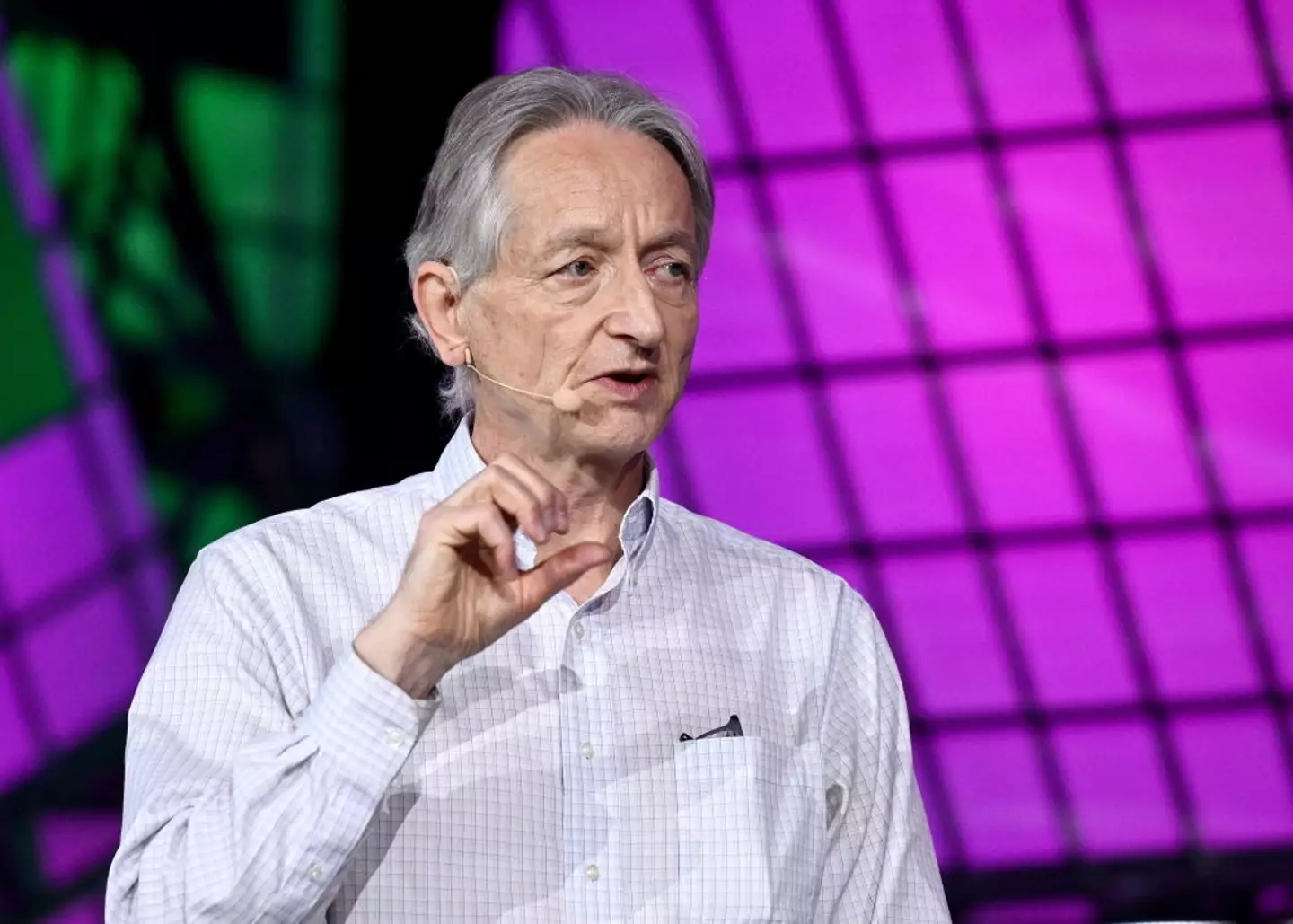
Hinton has expressed a wide variety of concerns regarding the future of AI technology (Ramsey Cardy/Sportsfile for Collision via Getty Images)
Hinton’s worries don’t just stop at the wealth imbalance caused by AI too, as he details his worries about where AI will stop following investment from big companies in an interview with CBC News:
“There’s all the normal things that everybody knows about, but there’s another threat that’s rather different from those, which is if we produce things that are more intelligent than us, how do we know we can keep control?”
This is a conundrum that has circulated the development of robots and AI for years and years, but it’s seeming to be an increasingly relevant proposition that we might have to tackle sooner rather than later.
Featured Image Credit: JONATHAN NACKSTRAND / Contributor / Yuichiro Chino / Getty

The strange moment the Russian Prime Minister realized he was talking to an AI version of himself was caught on camera.
There are obviously some concerns in the continuing artificial intelligence boom, and as we bring AI into our homes with everything from our mobile phones to robots that claim to look after our kids, it’s becoming part of our everyday lives.
Even AI’s most vocal critics are starting to see its potential advantages, with Donald Trump vowing to scale back the restrictions that have been placed on AI’s evolution during the Biden administration. We’re on the cusp of an AI-dominated future, and it seems not everyone is happy.
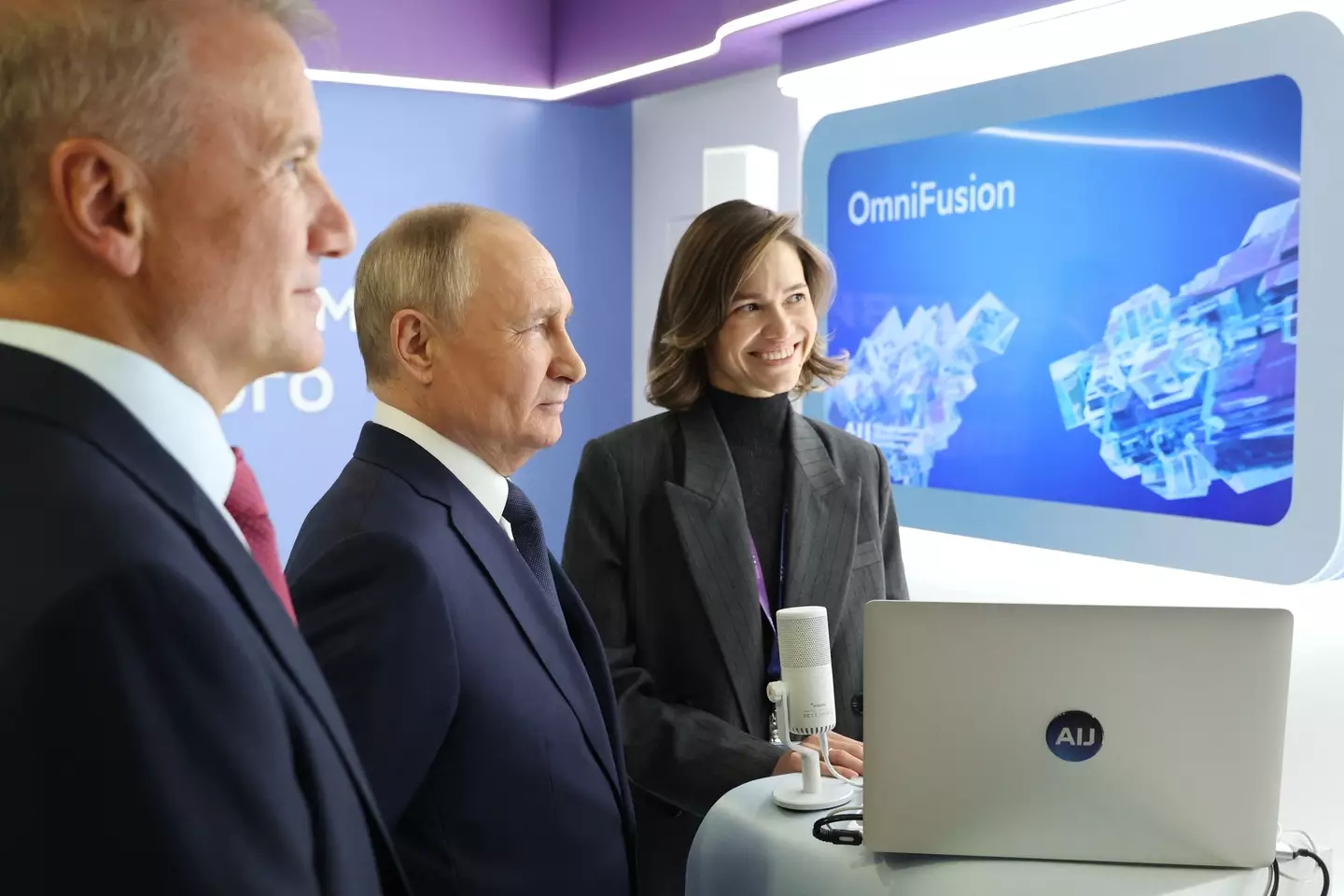
Russia is among the big powers looking to an AI future (MIKHAIL KLIMENTYEV / Contributor / Getty)
The likes of journalists and voice artists have shared their worries about how AI could put them out of work, but now, it looks like even Prime Ministers aren’t safe from losing their jobs.
As one of the most divisive but renowned political figures out there, Vladimir Putin has been replicated in AI form. If one Putin wasn’t enough, how about facing the real deal and his AI self?
In a bizarre moment, the real Putin has come face-to-face with his AI version, and it’s just as weird a meeting as you’d expect.
Putin has been accused of using a body double, but with the man himself saying, “only one person can speak like myself and use my voice, and this is going to be me,” AI is here to prove him wrong.
In the video, a student from St. Petersburg University shows how easy it would be to create an AI version of Putin that acts and talks just like him.
As well as asking about Putin’s double accusations, the AI Putin asks what he thinks about the dangers artificial intelligence and neural networks could bring into our lives.
A defiant Putin dodges the question about dangers but adds: “Well…I see you may resemble me and speak with my voice, but I have thought about it and decided that only one person must be like me and speak with my voice, and that will be me.”
Others in the comments were impressed with the AI replica, with someone joking: “Plot twist, the Putin in the press conference is actually the AI one!”
Another added, “The brief look of surprise on Putin’s face is priceless. This guy is a master of presentation; he is almost NEVER caught off guard, but here, for a brief second, he was. Hilarious!! 😂,” and a third chuckled, “An intense debate between Putin and his opponent in the next Russian election.”
It’s unclear whether the ever-stoic Putin was impressed with his AI double or can’t stand it, but there’s no denying the look of shock on his face when it’s revealed.
AI seemingly has the cojones to ask Putin questions that the average journalist wouldn’t, although there are jokes in the comments about how AI Putin mysteriously took a tumble out of a window not long after the interview ended.
Putin maintains there’s only one man who can do his job, but we’ve got to admit, his AI double is pretty impressive.
Featured Image Credit: VYACHESLAV PROKOFYEV / Contributor/Getty / The Telegraph/YouTube

One woman has been left ‘shocked’ and frustrated after realizing that the tattoo she was currently having done was in fact designed using artificial intelligence.
If there’s something that you really want to be confident and happy with it’s a tattoo, as the design is (somewhat) permanently inked onto your skin for the rest of your life.
Some people choose words that mean a lot to them or something with a special connection, whereas others opt for a design that represents them or that they think would look great on their body.
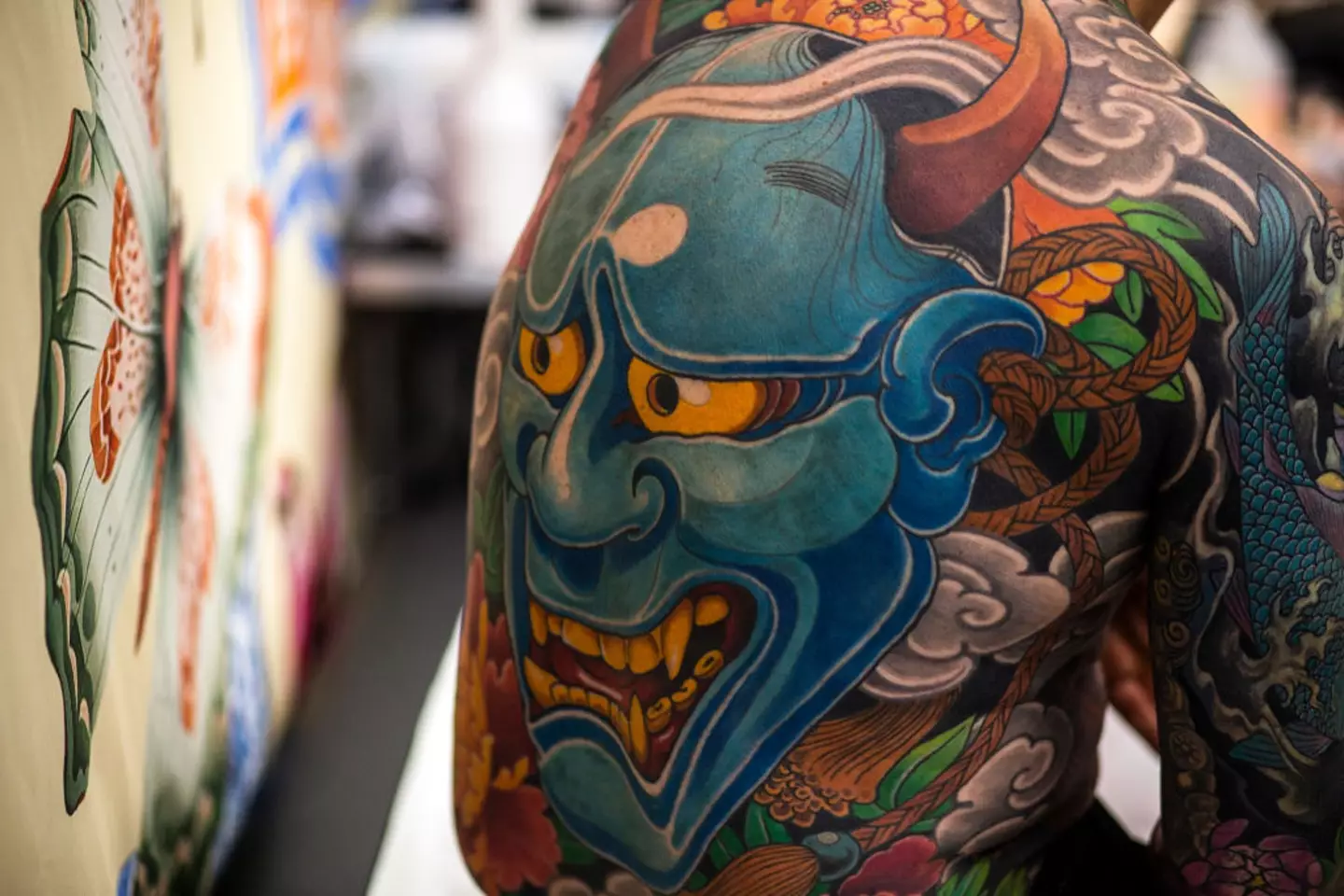
Would you be happy if you found out your design was made with AI? (Hristo Vladev/NurPhoto via Getty Images)
Ultimately though you want to be happy with the design, so it might come as quite the shock that what you were under the impression that you’d meticulously chosen wasn’t exactly what you thought it was.
That was unfortunately the situation that Helsinki native Kaarina Vuorinen was left in, as she was made aware that the artist currently in the middle of inking a gothic sword onto her leg had indeed designed the artwork using AI technology.
In an interview with the Wall Street Journal, Vuorinen remarks that she was “in shock,” continuing on to remark that while the tattoo itself was ‘pretty’, “it doesn’t have soul.”
While many tattoo enthusiasts might not always choose their designs based on personal connection, they very much value the input and creativity that has gone into the artwork of choice, and finding out that no human was involved at all could very much feel like a betrayal of that process.
Not only is the mechanical nature of human creation absent, which many enthusiasts value heavily, but it is also argued that AI generated artwork is directly taking from actual work without the original creator’s permission.
It’s understandable, then, that some might have reservations about where their designs come from, as the last thing you’d want is to be branded with a piece of art that they feel to be unethical.
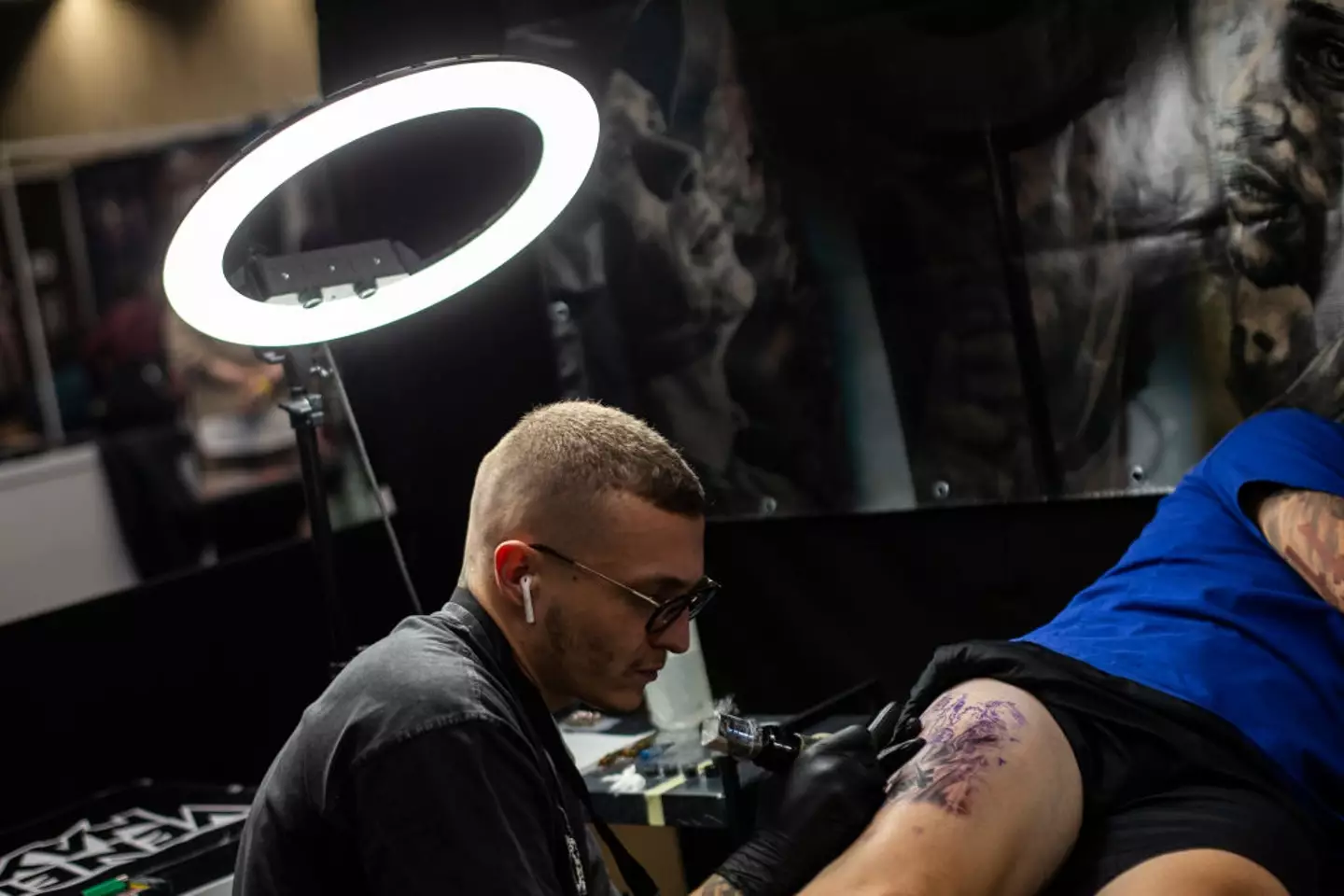
Some argue that AI benefits the tattoo artists (Hristo Vladev/NurPhoto via Getty Images)
There is perhaps advantages for the tattoo artists themselves in the decision phase, as one owner of a Tattoo shop details to the Wall Street Journal that he uses generative AI to propose ideas to a client, and then creates the final version by hand.
This, in his eyes, saves the pain of having to spend ‘up to 20 hours’ on a design that the client doesn’t end up liking, but I’m not sure that many will agree with this practice.
What is clear, however, is that these incidents will become more and more frequent as AI evolves and becomes more popular with the general public.
We’ve already seen the first fully AI generated piece of art sold at an official auction, so there’s theoretically nothing stopping it from stepping into the tattoo world too.
Featured Image Credit: Alvaro Medina Jurado / Nicola Tree / Getty Images

There’s no short of uncertainty when it comes to what the future will look like with AI continuing to become smarter and more competent.
On the bright side, recent studies discovered that AI is still more expensive than human labour across multiple occupations.
Now, one of the largest surveys of its kind to date aimed to give us a clearer picture of what lies ahead – and if there’s a timeframe humans will potentially become extinct.
2,778 AI researchers – who have recently published work at six of the top AI conferences – gave their opinions on what they believe the timeline looks like for future ‘AI advancements and milestones’, along with any possible pros and cons of such.
To be honest, the results are a little frightening at first glance.
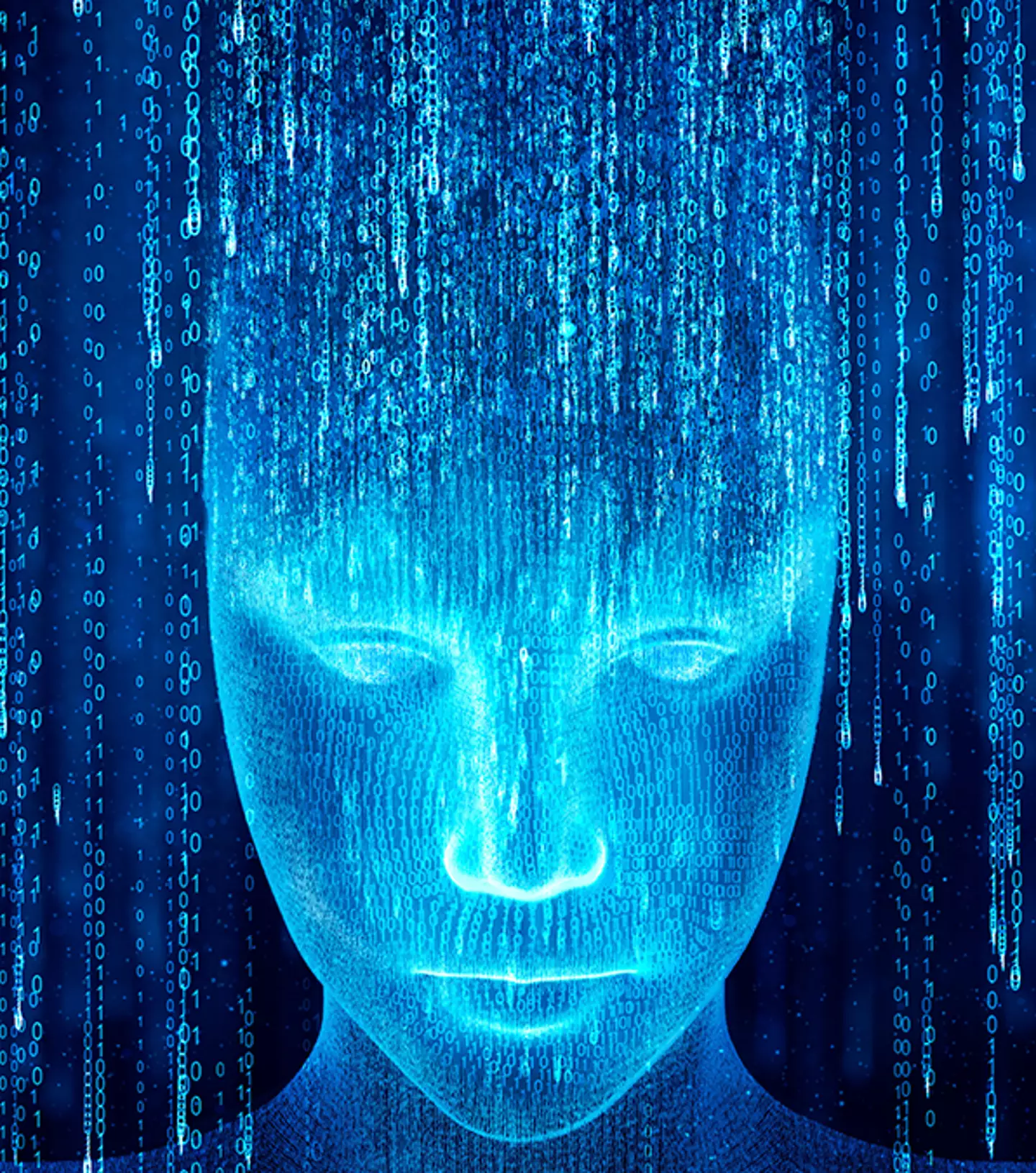
Scientists predict there is a 5% chance that AI will cause human extinction / Yuichiro Chino/Getty Images
The scientists predict there’s a 50% chance AI will outperform humans in the next 20 years or so.
More specifically, over half of the scientists (58%) believe that there is a 5% chance of human extinction or other catastrophic outcomes from AI.
Paper co-author Katja Grace, of the Machine Intelligence Research Institute in Berkeley, California, explained: ‘It’s an important signal that most AI researchers don’t find it strongly implausible that advanced AI destroys humanity.
‘I think this general belief in a non-minuscule risk is much more telling than the exact percentage risk.’
Additionally, the researchers foresee a 50% chance of AI replacing human capabilities across all tasks by 2047, along with a 50% likelihood of complete automation of all human jobs by 2116.
Although, there are some differences in terms of task complexity.
Respondents foresee that AI has a 50% or higher likelihood of accomplishing specific tasks within the next decade. These tasks include creating songs to the standard of popular artists, or coding a payment processing site from scratch.
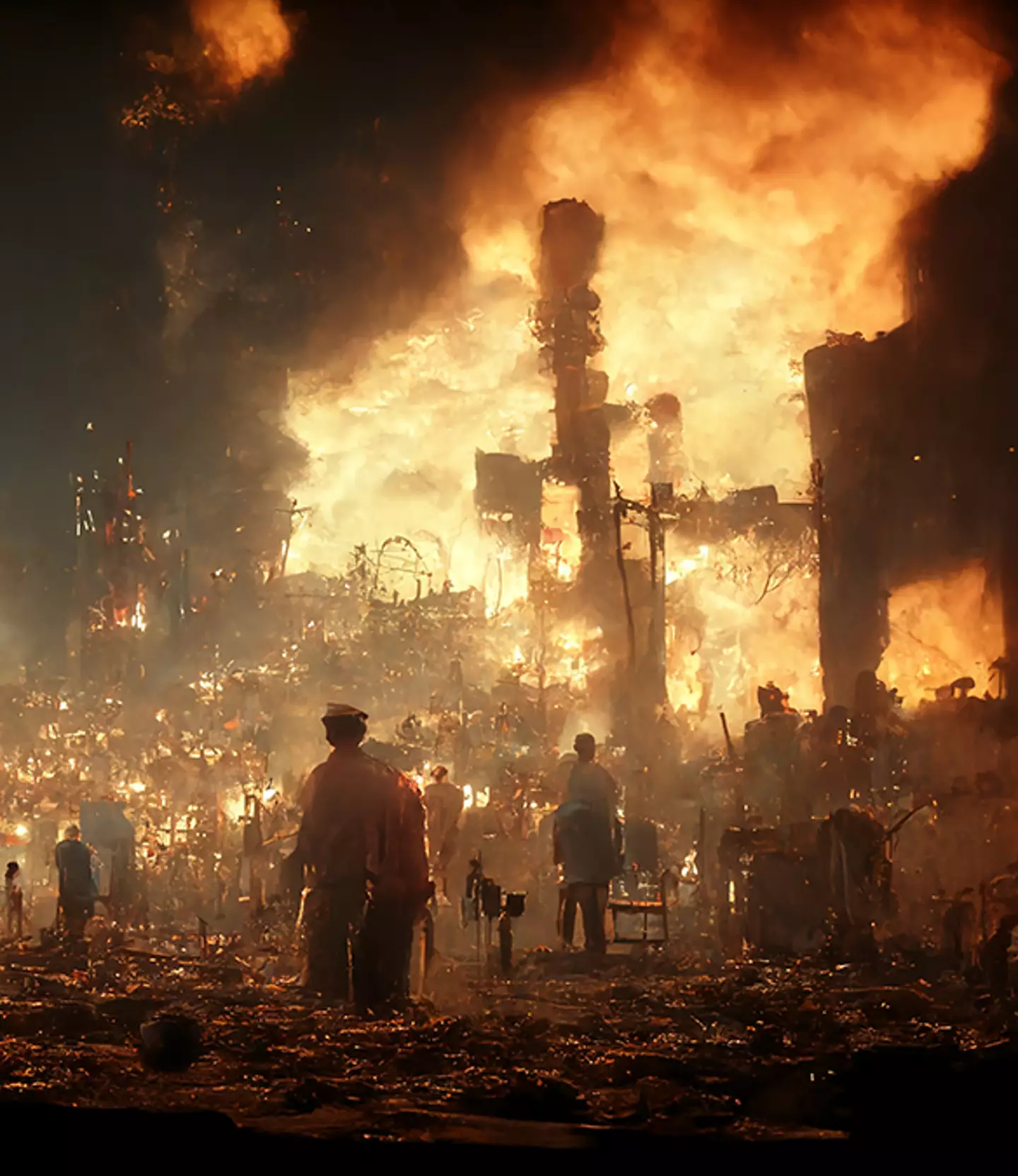
AI can perform some tasks better than others / Kirill Rudenko/Getty Images
Meanwhile, more intricate tasks such as installing electrical wiring or solving mathematical mysteries are expected to take longer, though still with the possibility of being within our lifetime.
What’s even more interesting, is that the survey shows AI will hit certain milestones sooner than predicted when compared to the same survey conducted in 2022.
It’s not the most uplifting news, but Émile Torres of Cleveland’s Case Western Reserve University told the outlet that these ‘kinds of surveys don’t have a good track record’ in predicting AI achievements. So, there’s no immediate worry of a Terminator scenario happening in the near future.
Furthermore, despite researching AI, the authors of the study admitted to not being experts in AI forecasting.
‘A lot of these breakthroughs are pretty unpredictable. And it’s entirely possible that the field of AI goes through another winter,’ Torres added.
